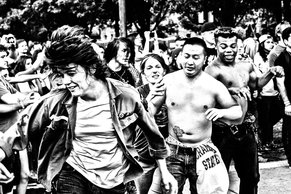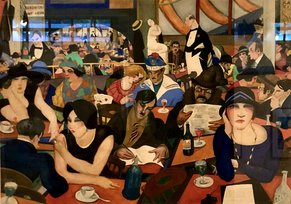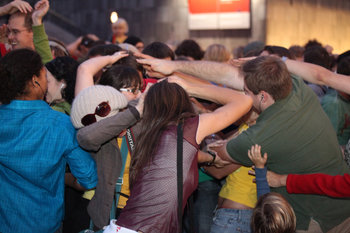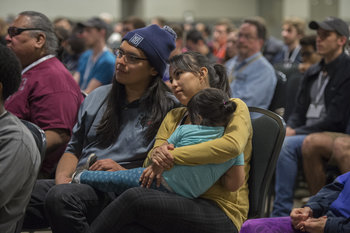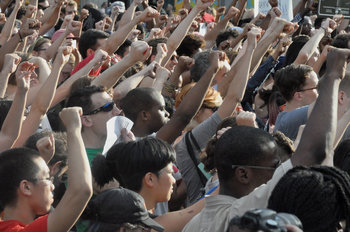Voting
A root type of power that in theory shapes all laws and policy that create formal power. In practice, laws may be greatly influenced by other factors besides voting such as special interest groups.Wealth
Wealth is the legal right to control resources such as firms, land and property. This also allows an individual to consume products and services where they have the power of a customer.Authority
Authority is the legal right to control aspects of a society or an organization. For example, a CEO is granted power to control an organization within the bounds of the law and under the direction of owners of the firm and their representatives.Delegated Authority
Delegated authority is the transfer of authority to those who are responsible for work. For example, elected politicians may have complete power over a government or international agency but in practice delegate much or all of this authority to bureaucrats who actually run these organizations.Separation of Powers
It is common for power to be structured into a series of checks and balances that are designed to prevent abuse of power. For example, the government of the United States is structured into a legislative, executive and judicial branch. Similarly, corporations are structured with a board of directors, CEO and auditor.Creative Control
An individual's ability to shape their own work and the work of others. For example, a software developer who is allowed to decide how an algorithm should make a decision that will impact a large number of individuals.Influence
Influence is the ability to change the ideas, decisions and actions of others. This is based on persuasion and is increased by the cultural capital, talent, relational capital and social status of an individual. For example, a CEO who is able to influence the direction of an entire industry with their network of relationships and talent for storytelling that paints a vision of the future that inspires people.Protest & Rebellion
Not all power stems from the systems of a society. For example, the ability of groups to temporarily shut systems down using peaceful protest. This is an essential counterbalance to state power and the influence of elites.
Malicious Compliance
Malicious compliance is the use of an organization's own rules against it. For example, a labor union that uses safety rules to slow down a production line in the midst of a dispute with management. It is also possible for individuals to use this technique. The use of malicious compliance in the military is the origin of the term passive aggressive.Authoritarian Personality
Authoritarian personality is when an individual tries to extend their own power by using the rules of an authority. For example, a border security officer who uses their position to enjoy a sense of personal power over others.| Overview: Social Power | ||
Type | ||
Definition | Control or influence over the resources or members of a society. | |
Related Concepts | ||

